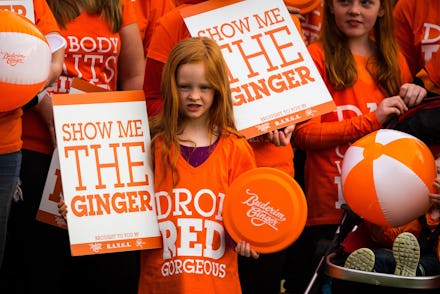Science Has Good News for People With Red Hair

You'd better think twice before you pick on a ginger.
First off, red hair and freckles are beautiful. Second, it's mean to pick on people, you jerk. Third, they're scientifically proven to look younger than they actually are.
Wait — they are?
You betcha. People carrying a variation of the gene MC1R tend to look young for their age, according to a new study in Current Biology. If MC1R sounds familiar, it's because the gene is also responsible for red hair and fair skin.
"For the first time a gene has been found that explains in part why some people look older and others younger for their age," study co-author Manfred Kayser said, according to the Telegraph.
To conduct their study, researchers at Rotterdam's Erasmus University examined the faces of nearly 2,700 elderly Dutch Europeans, the Telegraph reported.
They used a 3-D imaging system to analyze front and side views of the subjects' faces; then they ran an algorithm to determine the subjects' "perceived age," adjusting for factors like sun damage, skin color, age and sex.
Those who carried a certain variation of MC1R looked, on average, two years younger than their real age — not a massive discrepancy, but we'll take it.
Looking younger is a good thing — and it's not because societal conventions equate beauty with youthfulness.
According to one 2009 study, perceived age is a useful biomarker of how long you'll live. When they analyzed photographs of twins, researchers found that "the bigger the difference in perceived age within the pair, the more likely that the older looking twin died first."
Long live gingers.